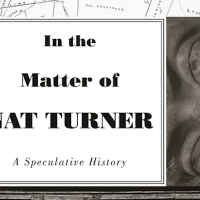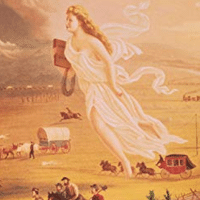-
‘From what present are we historicizing the left?’ Arab Lefts: Histories and Silences — Alina Sajed
There has been renewed interest in the long 1960s over the last few years, not least spurred by the anniversary, in 2018, of the 1968 global uprisings.
-
Nat Turner and Expanding Historical Memory — Aziz Rana
The last year has witnessed an extensive public conversation, from the 1619 Project in the New York Times to protests in the streets, about American historical memory.
-
Capitalism and the Telos of the Neoliberal Civilizing Mission
In 1931 the British Colonial Office submitted a special report to the Council of the League of Nations on the “Progress of Iraq” in the previous decade. Since the First World War had ended with the dismemberment of the Ottoman Empire and the confiscation of its territories, Iraq had been governed as a British mandate, under the supervision of the League.
-
Reflections on Marxism and Law: A Review of Igor Shoikhedbrod’s Revisiting Marx’s Critique of Liberalism
The book complicates the common narrative that Marx was the quintessential critic of liberal rights. Shoikhedbrod’s close and careful reading of Marx’s texts is insightful and targeted. The book helps readers to think about the role of law and rights under capitalism, and also to imagine its future in a communist society.
-
All too relevant: Marx’s critique of rights and neoliberal human rights
Jessica Whyte’s new book, The Morals of the Market, demonstrates the kind of scholarship we all aspire to: insightful, thought-provoking, and, above all, accessible and engaging. In it, she traces the “historical and conceptual relations between human rights and neoliberalism”.
-
Capital and climate in the critique of the State
This is the second in a series of posts comprising a symposium on the Marxist tradition of state theory and its contemporary lineages.
-
Exploitation, Marxism, and Labour Law (Part Two)
The first model is a radical critique of all forms of bourgeois right, including employment rights, which are considered to constitute an ideological reflection of the capitalist mode of production, and therefore an inseparable companion of exploitation.
-
Exploitation, Marxism, and Labour Law (Part One)
On trial with other members of the Rhenish District Committee of Democrats in 1849, Karl Marx argued in a Cologne court that their prosecution was based upon “laws which the Crown itself has trampled into the dirt”.
-
Reading Marx on migration
If any specter is most clearly haunting the wealthiest states of the world today, it is the specter of nativism. It has become a tired cliché to recount the number and nature of political forces that have risen on the strength of fear of the migrant other, real or imagined.
-
Blood, breastmilk, and dirt: Silvia Federici and feminist materialism in international law (Part 2)
While a rich and engaging tradition of feminist approaches to international law has emerged over the past few decades, it has shown a marked tendency to sideline the long and multifaceted tradition of feminist historical-materialist thought.
-
Blood, breastmilk, and dirt: Silvia Federici and feminist materialism in international law (Part 1)
In this post, Miriam Bak McKenna, argues that Federici’s work offers a rich resource for redressing the conspicuous absence of a gendered perspective within academic scholarship on materialist approaches to international law.
-
Introduction to the material constitution
In a couple of previous posts on Legal Form, Rob Hunter has reminded us of the importance and aptness of a Marxist approach to the analysis of public law. Hunter’s intervention could not be more timely: even after the economic and financial crisis, and despite the comeback of Marxism as a relevant intellectual source at least within certain legal domains (think, for example, of international law) [1], there has not yet been a Marxist revival in constitutional studies. One possible explanation for this phenomenon (though likely not the only one) is the discredit and almost total obliteration of the best-known Marxist contribution to constitutional studies: Lassalle’s notion of the material constitution.
-
Against legal fetishism (part two)
Couching Trump as a “lawless” autocrat-in-the-making has become a matter of routine, something of a mantra repeated by “liberals” and “conservatives” alike. The trouble with this characterization is not that it is inaccurate, but rather that it is incomplete.
-
Against legal fetishism (part one)
Law here, law there, law everywhere. The first nine months of the Trump administration have thrust questions about the force of law, legal strategy and tactics, and the role of judges in the United States’ much-vaunted system of constitutional checks and balances to the fore of public attention.













